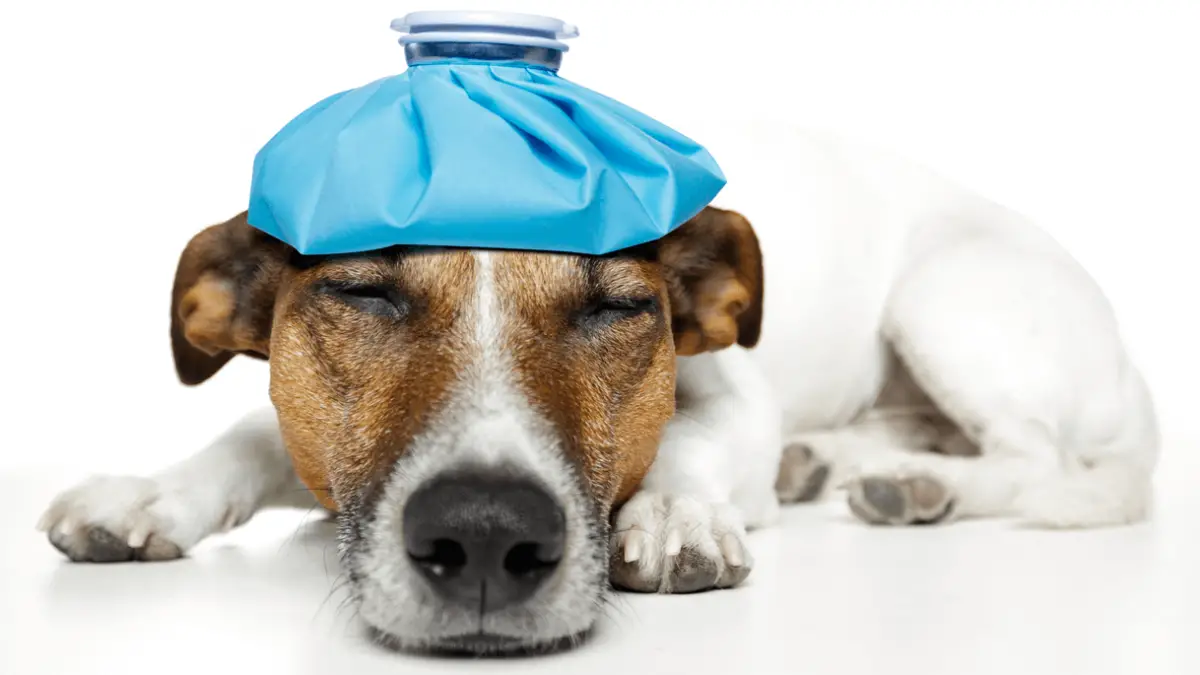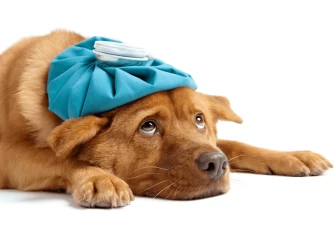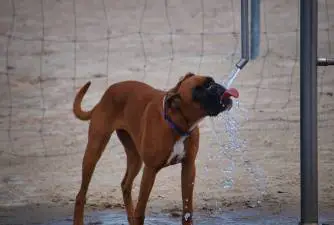Can Dogs Get Concussions - Here's How to Spot Them
05.11.2021.
There is nothing more dogs love than running around and playing. Sometimes, they are so into playing they forget to be careful, especially puppies. It is our job to keep our dogs healthy and happy. However, even with our best efforts, it can be impossible to prevent all accidents. Dogs often bump their heads, and some cuts and bruises are nothing they are unfamiliar with.
Head injuries can be scary since we don’t know the exact trauma our dog sustained. One of those scary things is concussions. If you ever wondered, “Can dogs get concussions?” you will be interested to learn the answer is - Yes. Here’s what you should know about concussions in dogs.
What are concussions?
The first thing we need to make clear is that the definition for concussions is the same in humans and dogs. According to the Concussion Legacy Foundation, a concussion is “a serious injury to the brain resulting from the rapid acceleration or deceleration of brain tissue within the skull.”

Concussion causes the brain to move and change shape. That will cause brain cells to move and get damaged. Changes and effects can be noticed on microscopic levels, and metabolic and chemical changes can happen within the affected brain cells. Concussion will make it harder for those cells to work and communicate properly, which is why concussions can cause so much damage.
How can dogs get a concussion?
The most common cause of concussions in humans is car accidents. Center for Disease Control estimates that there are over 3.8 million concussions each year. That means we get conked on the head a lot. Dogs can get concussions for all sorts of reasons. Since the source of a concussion is head trauma, you can only imagine how many possibilities there are in the dog’s world. Here are the 3 most common causes;
Car accidents
You might be surprised, but the most common cause of concussions in dogs is also car accidents. Dog owners fail to transport their pets safely. When an accident happens, dogs can move around the car and easily hit their heads.
The safest way to transport your dog is by using a carrier. Check out these recommendations - How to choose a dog carrier?
Attacks from animals
Larger dogs that spend a lot of time outside, near woods, or in dog parks can get attacked by other animals. Even a larger dog can attack and cause a concussion. It can happen when a dog gets in a fight and ends up slammed onto the floor. Unfortunately, that is also how many abused dogs die. Their abusers cause them a concussion and don’t provide any treatment.

Blunt trauma to the head
This is the most common cause small dogs get concussions. They are often carried around in their owner’s arms. That can be high enough for a small dog to get dropped on their heads and get a concussion. They can also run into a glass door or collide with other dogs while playing.
Other reasons
Concussions are one of the most common head injuries dogs suffer. Vets can name hundreds of reasons dogs got concussions. Some common ones are getting kicked by a farm animal, being hit by a ball, a baseball bat, falling off a porch, running into trees, benches, or cars, and falling debris.
How can I know my dog has a concussion?
The key to most successful treatments is early detection. That is also true with dog concussions. The sooner you notice signs your dog has a concussion, the sooner you’ll take them to the vet for a checkup. The key to knowing your dog might have it is by learning which symptoms to look out for.
What are the symptoms of concussion in dogs?
You need to look for four main things if you suspect your dog suffered a concussion; loss of consciousness, balance issues, pupil sizes, and vomiting. Here’s what you should look for;
Loss of consciousness
Loss of consciousness is one of the most common symptoms of concussions in dogs. If you have witnessed the trauma first-handed and your dog fell unconscious, take them immediately to your vet. The best treatment is the one that starts right away.
Balance issues
If you suspect your dog suffered head trauma and they start exhibiting balance issues or an uneven gait, take them to your vet. This is a subtle but important concussion symptom many owners can miss.

Pupil sizes
Dogs that got hit on the head can have pupils of different sizes. That is a clear sign something is wrong with your dog’s head. They can also move it quickly from side to side, which is another symptom.
Vomiting
Vomiting is a concussion symptom, but it can be pretty hard to notice since dogs vomit for various reasons. If your dog got in a fight, they might vomit from stress. However, if they suffer a head injury, vomiting can point to a concussion.
How dangerous are concussions in dogs?
The severity of the concussion will determine how dangerous it is. If it is a mild concussion, your dog will most likely recover fairly quickly. Mild concussions are scary, but they aren’t really deadly. However, severe concussions and head trauma can lead to different physical issues. Your dog might need special care in the future, and you can hope the trauma wasn’t so bad their brain will swell. Severe concussions can be deadly, so make sure you go to the vet as soon as possible.
Transporting a dog with a concussion
If your dog got hit on the head pretty hard, you should check for symptoms we mentioned earlier. Even if they aren’t exhibiting them, it would be best to take them to the vet, just in case. If your dog is conscious, remove their collar and walk them slowly to your car. Never pick them up by holding their neck or head.
If the dog is unconscious, you should keep their head at a 30-degree angle to ensure the pressure doesn’t rise in the skull. Avoid moving your dog’s body as much as possible. If you can, carry them with a stretcher or something that will keep them flat.
Concussion treatment
After you take your dog to the vet, the vet will determine the best course of action. They will most likely administer fluids, oxygen, and anti-nausea meds. However, before all of that, the vet should check if the dog’s heart or lungs were impacted and are still working correctly. Your vet might ask you to leave your dog for a day or two for observation. They need to make sure there isn’t any brain swelling or internal bleeding.
World Dog Finder team







Share